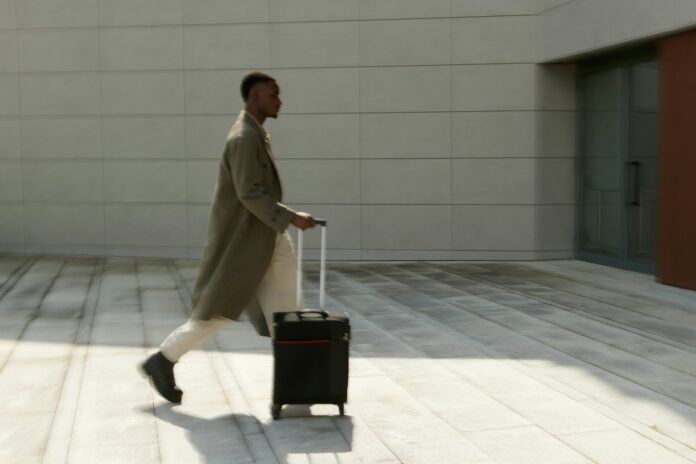In recent years, the concept of ‘work’ has experienced a radical transformation. No longer does it need to tie one down to a specific location or conventional nine-to-five schedule.
This modern-day revolution, often dubbed digital nomadism, sees individuals working remotely, typically in roles that leverage digital technology. The driving force behind this seismic shift has been the proliferation of mobile technology and a global shift towards flexible work arrangements. But mastering the art of remote work isn’t as simple as, you know, firing up your laptop and firing off a few emails…
Essential Skills For Potential Success As A Digital Nomad
Becoming a successful digital nomad requires a blend of hard and soft skills, in addition to a robust mindset.
From a technical perspective, digital nomads should have a firm understanding of digital tools relevant to their field. This could include mastering software development, digital marketing, or data analysis, to name a few. In terms of soft skills, effective communication, self-discipline, and adaptability are paramount.

Overcoming Challenges: Time Management, Communication & Isolation
Contrary to the romanticised perception, digital nomadism isn’t all about sipping cocktails on tropical beaches while firing off a few emails. Challenges in time management, communication, and feelings of isolation are common amongst digital nomads.
Managing different time zones can be a bit of a bother, but modern tools like World Time Buddy can help synchronise your schedule. Similarly, communication tools like Slack and Zoom are crucial for maintaining clear lines of communication with your team.
Addressing the challenge of isolation requires intentional effort. Regularly engage with local communities, join co-working spaces, or participate in digital nomad groups to combat feelings of loneliness.
Practical Tips For Balancing Work & Travel
Balancing work and travel is the heart of the digital nomad lifestyle. It’s about fully immersing oneself in the joys of travel while staying committed to professional responsibilities.
A practical tip is to have a dedicated workspace even while travelling, be it a quiet corner in your Airbnb, a local café, or even working remotely in coworking spaces. Maintaining a regular schedule, similar to what you’d have in a more traditional working environment, also aids in keeping a balance.
Read: 7 IDEAL tips for saving money as a digital nomad
Finances & Accounting: Keeping Things Straight
Let’s face it; keeping track of your finances and taxes is an essential, albeit not the most exciting, part of being a digital nomad. You’ll want to keep a detailed record of your income, expenses, and any taxes due. Utilise financial management apps like Expensify or QuickBooks to make this task easier.
Furthermore, as the experts at Reed & Co accountants tell us, it’s crucial to understand the tax laws in both your home country and the countries you work in. If you’re self-employed, you’ll need to submit a Self Assessment tax return in the UK. You may also need to pay taxes in the country where you’re working, depending on the local laws and tax treaties.

Leveraging The Power Of A Virtual Business Address
Maintaining a virtual business address in your home country can be advantageous for digital nomads. This service allows you to have a registered address for your business, even while you’re trotting across the globe. It’s also particularly useful for receiving post and maintaining a professional appearance.
Consider Dublin as an example. The city is a hub for tech companies and startups, and registering a virtual business address in Dublin can provide you with a prestigious address without the costs of a physical office. Companies offering virtual addresses often provide additional services, like mail forwarding and meeting room access, making them an invaluable asset for any digital nomad.
Or, think further afield. Chiang Mai in Thailand, for instance, has become a global hub for digital nomads looking for a culturally inspiring, cost-effective experience. Indeed, Thailand’s second city is popular among digital nomads due to its affordable cost of living, reliable internet connectivity, and thriving expat community. The city offers a high quality of life with access to modern amenities, cafes, and coworking spaces, the two most popular being Yellow Co Working Space and Punspace. Virtual business addresses – available via these co-working spaces, incidentally – can help cement that sense of truly living somewhere far-flung and exciting.
If relocating to the other side of the world feels a little intimidating, then closer to home, Lisbon is another hugely popular choice for remote workers looking for a more laid-back pace to life. So much so, in fact, that we’re written a whole guide for digital nomads moving to the city here. Do check it out sometime!
Read: 5 of the most liveable cities in South East Asia for expats
How To Find Remote Work Opportunities
The rise of remote work platforms has made it easier to find work that accommodates the nomadic lifestyle. Websites like Remote.co, FlexJobs, and Upwork list a myriad of job opportunities spanning various industries. Be sure to curate a compelling digital portfolio and keep your LinkedIn profile up-to-date.
Must-Have Tech Tools For Digital Nomads
In the digital age, staying connected is crucial. Essential tech tools for digital nomads include reliable gadgets like a high-performing laptop and smartphone, portable Wi-Fi devices, and a VPN to ensure proper cybersecurity when travelling.
Moreover, productivity tools like Trello or Asana for task management, Google Suite for collaboration, and Calendly for scheduling are immensely useful.

Embracing A Healthy Lifestyle: Nutrition & Fitness
One aspect often overlooked by digital nomads is maintaining a healthy lifestyle. When constantly on the move, it can be challenging to uphold regular fitness routines or balanced diets. However, your physical health directly impacts your mental well-being and work productivity.
Apps like MyFitnessPal can help you monitor your diet, whilst ClassPass or Freeletics offer flexible fitness solutions, no matter where you are in the world. Exploring local cuisine is an exciting part of travelling, but be mindful to maintain balanced nutrition.
Cultural Sensitivity & Adaptability
As a digital nomad, you’ll be immersing yourself in various cultures. It’s important to adapt and be sensitive to local customs and traditions. This adaptability fosters respect amongst locals and ensures a pleasant experience for everyone.
Try learning a few basic phrases in the local language and educate yourself about local customs before arriving. Language learning apps like Duolingo or apps like Babbel can help you get to grips with the odd turn of phrase, though there’s nothing quite like immersing yourself in conversation with locals to truly begin grasping the nuances of a new language.
The Bottom Line
In essence, the art of mastering remote work lies in striking the perfect balance between professional obligations and the freedom of exploration. It requires meticulous planning, adaptability, and a sense of adventure, but for those who get it right, it presents an exciting and fulfilling way of life.





